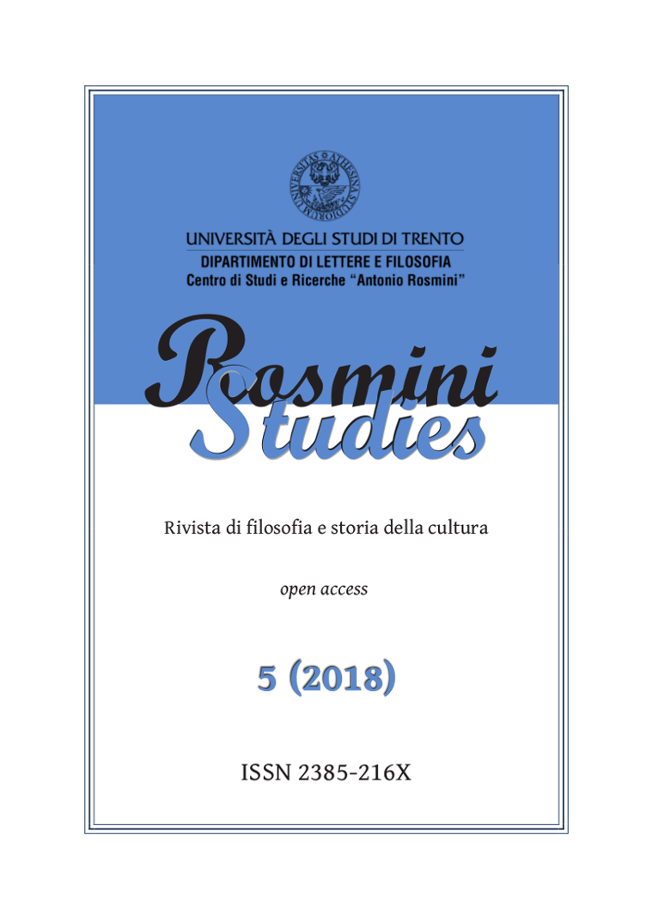Desacralizzazione come santificazione della Chiesa. La diagnosi di Rosmini delle piaghe della Chiesa e la loro rilevanza attuale
DOI:
https://doi.org/10.15168/2385-216X/175Keywords:
Antonio Rosmini, Five Plagues, Holiness, Clericalism, Pope Francis, Women in PriesthoodAbstract
In the first part of the essay, the author examines the five plagues of the Church that are presented by the great Catholic intellectual Antonio Rosmini in 1848 in a text entitled Delle Cinque Piaghe della Santa Chiesa which was very influential for Italian Catholicism in the 20th century. The author argues that the text is not simply a diagnosis of the unsatisfying state of Catholicism but also refers to the question of the sacred and the holy. Holiness is to be linked the unpronounceable Tetragrammaton YHWH designating something inaccessible to human power. Rosmini, conscious of the power mechanisms of society and their totalitarian grasp, imagined a lovingly devoted Church to have the task of renunciating earthly regimes of power, thereby remembering its evangelical origins. The author shows that each of the plagues designates a critique of Church's claim to worldly power. In the second part, he examines a conception of holiness in which the holy designates man as oscillating between two subjects, his own and that of Jesus, the latter marking a radical opening of the subject and the abundance of the name of God. It is betrayed when the Church becomes a sacral and institutional space of exception. In the third part, the author introduces four new plagues of the Church: the exclusion of laymen from joint responsibility for the Church, the claim to moral superiority as a legitimisation of sacralised power, sexual abuse and clericalism as patriarchal power and the exclusion of women from the sphere of holiness. While these contemporary plagues indicate an understanding of holiness inadequate to the Gospel, Pope Francis's notion is rooted in the latter, thereby sharing Rosmini's notion of holiness, a notion that according to the author, is decisive for the future of the Catholic Church.



